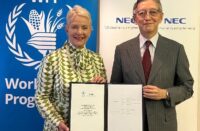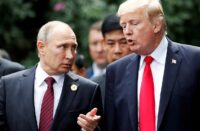 By Peter OBIORA InvestAdvocate
By Peter OBIORA InvestAdvocate
Lagos (INVESTADVOCATE)-The International Monetary Fund (IMF) Monday advised Ghana to increase its banks capital base to contain vulnerabilities, including the risk of nonperforming loans.
This is coming on the heels of the IMF’s Executive Board recommendation on the conclusion the Article IV consultation with the country.
The IMF Directors noted that Ghana’s banking system has grown rapidly and is competitive and recommended higher minimum capital buffers to contain vulnerabilities, including the risk of increasing nonperforming loans.
As part of the Article IV consultation with Ghana, the IMF encouraged the authorities to follow through on the 2011 FSAP recommendations by further upgrading financial sector legislation and supervision, and deepening cooperation with regional counterparts.
They also stressed the need to address the issues pertaining to the remaining weak banks, and advised the Bank of Ghana to divest its financial stake in the banking sector.
Also, the IMF Directors supported the maintenance of a tight monetary stance until inflationary pressures subside and fiscal consolidation is firmly established.
They further recommended containing monetary financing of the fiscal deficit, and saw scope for further improvements in the inflation targeting framework to enhance the effectiveness of monetary policy.
According to them, this could involve improved forecasting, enhanced communication to the public, and rolling one to two year inflation targets, to better anchor expectations in Ghana.
The IMF said policy mix deteriorated in the course of 2012, while fiscal policy became increasingly expansionary, the Bank of Ghana tightened monetary policy in the second quarter of the year to arrest a rapid depreciation of the cedi. “The currency subsequently stabilised, with recent depreciations in line with inflation differentials, but at the cost of high real interest rates,†the IMF Directors said.
They also affirmed that the consumer price inflation which stayed in the single digits in 2012 helped in part by low food and repressed domestic fuel prices. “With rising core inflation (excluding food and energy) and recent increases in fuel prices, inflation has moved back above 10 percent (10%),†the IMF said.
The IMF further affirmed that the growth momentum continues into 2013, with increased oil production projected to keep overall Gross Domestic Product (GDP) growth close to 8%. “Non-oil growth is likely to decelerate, however, as a result of energy disruptions and high real interest rates. Survey-based inflation expectations remain elevated at above 10%,†they affirmed.
The Fund said Ghana’s current account deficit is projected to stay high at 12% of GDP, despite a moderation in import growth, reflecting a weaker outlook for cocoa and gold exports. “Staff projects a small reduction in the fiscal deficit to 10% of GDP this year, about 1% of GDP higher than the authorities’ budget projections, mainly reflecting higher cost of energy subsidies,†the IMF said.
Apart from these, the IMF endorsed Ghana’s decision to remove fuel subsidies and called for similar action to adjust electricity prices, as a crucial step to tackle the country’s energy supply problems. “Improving revenue mobilisation, including implementation of envisaged tax policy measures, is also a priority. The mid-term policy review would be an opportunity to identify additional measures to secure the fiscal targets,†the IMF Board.






